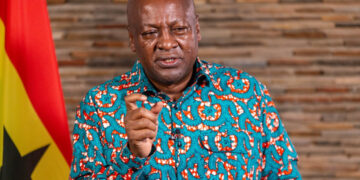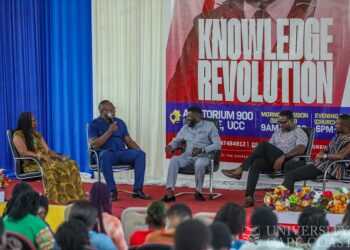The Chief Executive Officer of the National Film Authority (NFA), Kafui Danku, alongside the Minister for Communication, Digital Technology, and Innovation, Sam George, have both pledged their support to renowned Nigerian producer and actress, Bimbo Ademoye, following concerns over the unauthorized airing of her films on Ghanaian television stations.
Bimbo Ademoye had taken to Instagram to voice her frustrations, directly tagging the officials and urging them to intervene in the matter. Her call for action quickly garnered attention, with Sam George responding publicly. In a statement, George acknowledged Bimbo’s grievances and assured her that immediate steps would be taken to address the infringement.
Bimbo Ademoye, producer of many hit Nigerian films
“My attention has been drawn to your post thanks to the tag,” George wrote. “I will be engaging with my colleague minister responsible for regulating television content to address this issue. I wish to assure you that our government remains committed to respecting intellectual property rights and will work to ensure their full protection. Ghana and Nigeria share deep cultural ties, and it’s important we continue to collaborate in ways that respect and protect our creatives.”
Adding her voice to the matter, NFA CEO Kafui Danku also reassured Bimbo that concrete actions were underway. “Hi ma’am, my management and I are actively working to put a stop to this infringement. You should expect to see definite actions within the coming weeks,” she said.
This controversy has once again highlighted the persistent issue of copyright violations against Nigerian creatives by some Ghanaian media houses. It is not an isolated incident. In recent months, several Nigerian filmmakers have come forward with similar complaints.
In September 2023, Nollywood actress and filmmaker Ruth Kadiri publicly condemned Ghanaian television stations for broadcasting her films without proper licensing. Kadiri did not mince words, warning offenders of impending legal action should the unauthorized broadcasts continue.
Similarly, just last month, celebrated Nigerian actress Omoni Oboli took to her Instagram page to vent her anger over the same issue. In a strongly-worded post, Oboli criticized the illegal airing of her content and called out the Ghana National Film Authority for its perceived inaction in curbing these infringements.

Sam George, (Left) Bimbo Ademoye (Middle) Kafui Danku (Right)
Bimbo Ademoye’s recent outcry has sparked a broader conversation across the Ghanaian and Nigerian entertainment industries, with prominent figures like Ghanaian actress Juliet Ibrahim also weighing in. Many have expressed concern about the growing trend and emphasized the urgent need for stricter enforcement of intellectual property laws to protect the rights of filmmakers across the West African region.
The unfolding developments have reignited calls for stronger collaborative frameworks between Ghana and Nigeria to safeguard creative works and ensure that artists from both countries are adequately compensated for their intellectual property.
As discussions continue, many industry stakeholders are hopeful that this renewed focus on copyright protection will lead to meaningful reforms and the establishment of a more respectful and legally compliant media environment in Ghana.




























